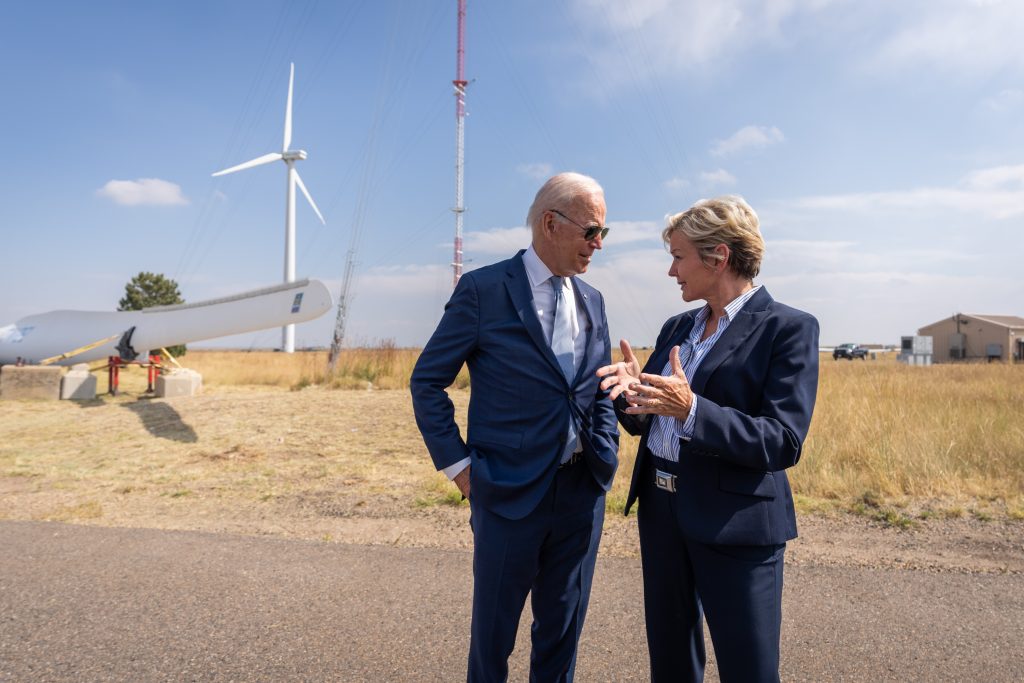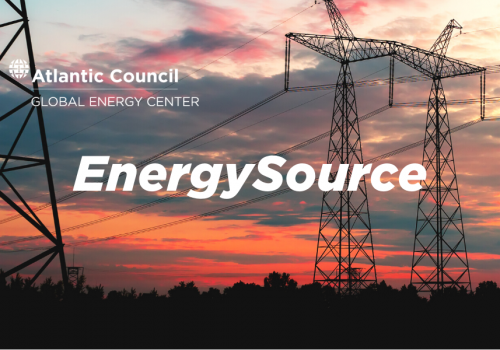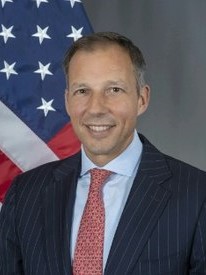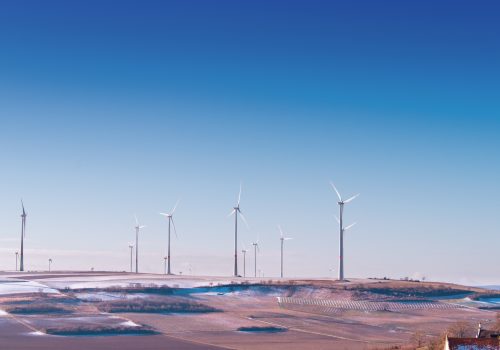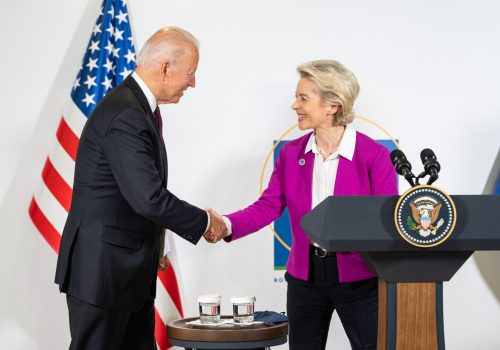The greatest achievements in US history happened through considerable costs, shared sacrifice, and courage. Victory in World War II, the moon landing, and the defeat of the Soviet Union were years-long efforts that cost the nation greatly but have been celebrated around the globe for generations. During these great national challenges, US leaders were honest about the costs and grounded the country in shared ambition, girded with moral purpose.
It’s time for the United States to lead the global clean energy transition in the same way.
For years, US and European politicians have lauded the consistent decline in the cost of renewables and batteries to increase public support. The World Economic Forum noted that the cost of electricity from utility-scale solar photovoltaic panels plunged 85 percent from 2010 to 2020.
This price reduction correlates with China’s state industrial policy and control of more than 80 percent of global solar manufacturing. The International Energy Agency (IEA) stated that “China has been instrumental in bringing down costs worldwide for solar panels, with multiple benefits for clean energy transitions.”
But China’s role in clean tech cost reductions cannot be recognized anymore without acknowledging—and condemning—how those reductions were achieved: through state-sponsored intellectual property theft, human rights abuse, environmental destruction, and predatory investment practices. The FBI concluded that the “Chinese Communist Party are a grave threat to the economic well-being and democratic values of the United States.”
The United States is conflicted. Policymakers want cheap Chinese clean energy goods but recognize that such reliance undermines US economic strength and security. This conflict yields perverse results, like the waiving of justified tariffs even after the Commerce Department concluded that Chinese firms violated trade rules.
The United States must not jeopardize its national security priorities out of fear of slowing climate progress. And US success cannot be dependent on China, the world’s greatest and ever-growing climate polluter. Instead, the United States should develop a secure, resilient, and responsible clean energy supply chain. Leaders speak about the energy transition as virtuous; we must ensure that the means are as well.
The United States should address this now, as US companies reorient their supply chains from the ground up. The IEA found that the clean energy transition will require an exponential demand growth in critical minerals while also noting that the US permitting system inhibits timely domestic production.
Meanwhile, the Chinese Communist Party has spent over a decade amassing critical mineral mines around the world, and localizing processing and manufacturing at home. President Joe Biden acknowledged that “China controls most of the global market in these minerals.”
The current US administration understands this fact and has taken some notable actions. The Inflation Reduction Act (IRA), for example, included $370 billion worth of “carrots” to encourage domestic clean energy manufacturing. Yet, the Treasury Department is wrestling with how to interpret language in the IRA that restricts federal incentives for electric vehicles (EVs). The law only permits subsidies for EVs if 40 percent of their critical minerals were mined or processed in the United States, or a country with which the United States has a free trade agreement (FTA). The law prohibits subsidies if materials are sourced from China and other malign actors.
Following a meeting with President Biden, European Commission President Ursula von der Leyen said that the EU would qualify for IRA subsidies. Yet many of Europe’s EV Gigafactories are owned by Chinese Communist Party-affiliated companies.
As currently written, the IRA’s subsidy test may create loopholes that could open the door for unscrupulous laundering-like activity. For example, an enterprising commodities trader in an FTA country could potentially import and minimally process Chinese metals and qualify for US subsidies.
The administration should make clear that moving prohibited goods through a friendly port does not—and should not—qualify for US taxpayer-funded subsidies.
Instead, the United States should adopt a focused and prescriptive interpretation that applies to countries and companies, both foreign and domestic. To qualify for subsidies and other federal incentives, companies should have to disclose their critical minerals and processing supply chain. This is the only way for the United States to really know where and how its clean energy goods are produced.
Those who refuse to share this information should be barred from receiving subsidies. After all, if a company chooses to do business with cheaper Chinese inputs, then it already enjoys a cost advantage.
US policy should help make choosing the right path profitable. And we must ensure that the benefits of the US market and federal taxpayer-funded incentives only accrue to those who can demonstrate a transparent, secure, responsible supply chain. Chinese firms have repeatedly failed that test.
Republicans and Democrats are united on the China threat. The administration should build on that rare bipartisan consensus. The United States should close loopholes and prohibit US taxpayer funds from benefiting our greatest strategic adversary. To do otherwise could politically imperil the IRA and substantively undermine our strategic goals—to increase US security and build a responsible clean energy supply chain.
Frank Fannon served as the inaugural US assistant secretary of state for energy resources. He is currently managing director of Fannon Global Advisors, a consultancy finding opportunity in geopolitics and the energy transition, and a nonresident senior fellow at the Atlantic Council Global Energy Center.
Meet the author
Related content
Learn more about the Global Energy Center

The Global Energy Center develops and promotes pragmatic and nonpartisan policy solutions designed to advance global energy security, enhance economic opportunity, and accelerate pathways to net-zero emissions.
Image: President Joe Biden talks with Energy Secretary Jennifer Granholm during a tour of the National Renewable Energy Laboratory Flatirons Campus in Arvada, Colorado. (Adam Schultz, The White House, Flickr, U.S. Government Works) https://www.usa.gov/government-works
